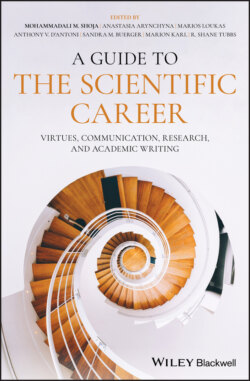Читать книгу A Guide to the Scientific Career - Группа авторов - Страница 44
2.4.2 Work Hard and Work Smart
ОглавлениеAs Cardinal James Gibbons (1834–1921) righteously indicated, “There are no office hours for leaders.” The hard rule of leadership proposed by Molinaro (2016) states that if one avoids the hard work of leadership, he will become a weak leader; but if he embraces the hard work, he will become a strong leader. Leadership requires hard work and also smart working to ensure the available resources are not being wasted but instead are being utilized in a meaningful manner that brings efficiency and sustainability to the management system (McCauley‐Bush 2013). The sense of purpose and urgency motivates a leader to do his best and to maintain his determination and commitment, and the resultant hard work creates opportunity by itself (Junarso 2008). Carol Dweck, an American psychologist, has distinguished two leadership mindsets, namely, fixed vs. growth mindset (Dweck 2006). Those with a fixed mindset see talent or genius as an inborn quality (i.e. one either has it or not), while people with a growth mindset see talent as a quality that can be achieved by active learning, perseverance, and purposefulness. The growth mindset is the definite precursor for leadership success as it fosters smart, hard work. This concept is consistent with how Vince Lombardi, an American football player (1913−1970), characterized the constitution of leaders: “Leaders are not born; they are made. And they are made just like anything else, through hard work. And that is the price we will have to pay to achieve that goal, or any goal.”
